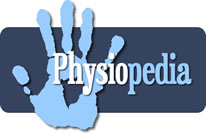Reading the newest issue of Orthopaedic Physical Therapy Practice (the magazine of the Orthopaedic Section of the APTA) I found interesting the Editor's Message written by Christopher Hughes, PT, PhD, OCS. The letter titled "When All Else Fails...We Succeed!" relates that an episode of care from a Physical Therapist that does not end with hoped for gaols met, is not a waste. That, in fact, it is a valuable tool to help in the clinical decision making by MD's - especially in the arena of deciding on surgery or other invasive procedure.
I agree with this view, and have educated a number of my clients that at the very least, their episode with me will make them better prepared for surgery and increase their prognosis after surgery. I would like to speak on a subject related to this: Over Utilization.
I will give our fellow professionals the benefit of the doubt and say that the desire to achieve all goals for all clients leads to continuing treatment past maximum medical benefit. We all do this, and looking at my stats from 2008, those who were discharged w/o all goals met averaged about 2-3 more visits than those who where discharged with goals met. Some of that is related to me trying to get that last goal or two, some related to MD referring back to "just try a little more", and more is related to the client wanting to have more PT. Now, what we need to be aware of is "benefit chasing".
We all know of clinics/PTs that do this. If the client has 20 visits per year, that's how many PT sessions they'll get. Regardless if it's a knee sprain or s/p ACL reconstruction. It's this practice behavior that really hurts us, particularly in the eyes of the insurance companies.
I'm sure there are many reasons why this practice occurs. Including desire to maximize profits. What we need to do as a profession is self police and encourage appropriate utilization of our care provided. Steps we (individually) can do are:
- Set goals with time frames, and share these with our clients. This will help hold ourselves accountable.
- Use outcome surveys. DASH, Oswestry, Neck Disability Inex, etc. Easy to get caught up in the "I feel a little better" trap and keep treating. Use these tools to help measure actual perceived change allowing you to make better continued treatment decisions.
- Track your outcomes. This will allow you to evaluate your tendacies in treatment and areas you can improve.
- Question your collegues and be open to constructive critisism from your collegues regarding visits.





